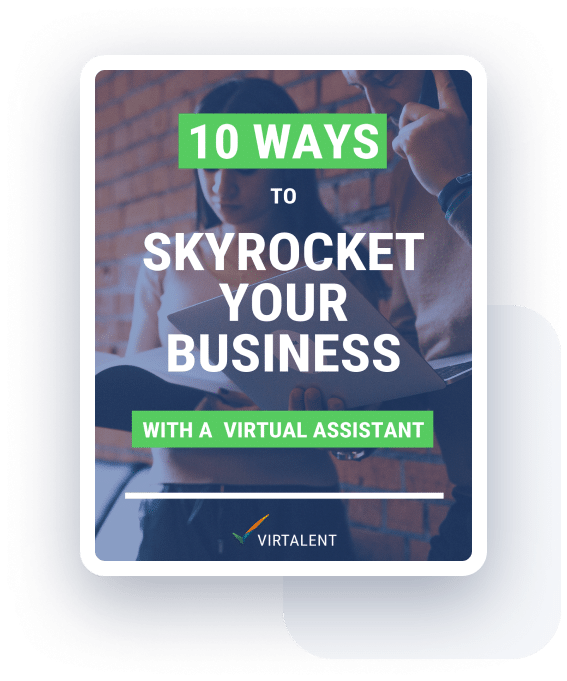Here we are going to look at how to manage a recruitment process. No matter what size your business is, having a robust and thorough recruitment process in place is really important. If you want to become a Virtual Assistant with us for example, you need to follow a thorough recruitment process which we are very proud of. As they say, people are your most important asset, so ensuring that you not only attract the best people for your business, but also have a great vetting process, a solid recruitment plan and of course, a solid interview process, will mean you hire the right people for your business.
Before you think about hiring anyone, it really is worth having a great recruitment process in place. And what do we mean by recruitment process? Well, this is everything from deciding when you want the person to start, to how you are advertising the role, to what questions you ask at the interview. There are lots of things to consider when thinking about how to manage a recruitment process, so let’s get started.
Timeframe
What is the timeframe in which you want to hire the new member of staff? Are you looking for the right person for the role, and don’t mind if it takes a little longer than usual? Or are you in need of someone to start asap?
This may well differ for each role you recruit for, so ensure you have multiple example time frames to work from. Whichever it is, ensure you know so you can plan out the rest of the process from there. Once you have a start date in mind, work backwards, taking into account all the other parts of the process detailed below, including advertising the role, the interview process and even references.

Job Description And Person Specification
This is a crucial part of any recruitment process and one that should not be rushed. To ensure you get the right person for the role, you need to attract the right applicants. And how will the applicant know this could be the right role for them? Through the job advert and job description.
The job description should include information about the company, which would be the same on all your job adverts, but the job description itself, with key responsibilities and personal specifications, which will be individual for each role. Make sure you include any additional features of the role such as benefits, location, if flexible working is part of the role, and any other important details the applicant will want to know when applying for the job.
Advertising
Where you place your advert is going to dictate who applies for your job. And sometimes, you may want to consider placing your advert in multiple places, or perhaps just one specialised job board.
If you are looking for someone for a digital marketing role, for example, you might consider a specialist digital marketing job site. Or what about an HR Manager? You could think about using an HR recruitment site and LinkedIn for example. And do you have an advertising budget for recruitment? Are there some roles you would feel would need a bigger advertising budget behind them than others? Ensuring you know how to manage a recruitment process with advertising included will lead you to success.

Application
Thinking about how you would like your applicants to apply for roles can be a contentious subject! You may have a piece of software you would like to use for your recruitment in which case an application form is what you will want your applicants to use. Or you could want them to apply with a cover letter and CV, or perhaps just their LinkedIn profile and ask them to answer a couple of very specific questions. Whatever your application process is, you can tailor it depending on the role you are applying for.
Interview
When you search in Google what kind of questions you should ask at interview, hundreds of thousands of articles come up, and understandably! There are a million and one questions you can ask an interviewee, but you need to figure out which are the questions that matter the most.
Will the new recruit be dealing with clients of customers on a daily basis? If so, you may want to ask them how they have dealt with a difficult situation in the past, to assess how they would respond in this kind of situation in your business. If you are recruiting for an Office Manager, you might want to understand how that person would go about organising an office move.
It is also good to have a handful of questions that are generic for your company, and then questions that are specific to the roles you are recruiting for. Another stage of the interview process could involve other members of staff, be it for second interviews, or even just informal chats. Factor this into your timeline, in case these need to be arranged.

Selection
Once you have held all of your interviews whether there are second interviews or not, you will get to the selection process. Here is a good chance to look at all those who you interviewed and decide who really hit the high notes. Some candidates may have interviewed better than others, and some may have even surprised you. The thing here is to think about who would be best for the role in your business. Writing pros and cons for each candidate can also help you decide if you have more than one particularly strong candidate. Keep referring back to the job description, person specification, and the candidate’s applications to help you make this decision.
At this stage, you may even need to take a step back and invite your shortlist back for another informal chat, if you are really stuck between candidates and unable to decide. This last chance could be the point at which one of the candidates really shines out to you, or you happen to build a very strong rapport with one of them, so it could be a really valuable extra step to take, even if it goes slightly outside of your timeline.
Offer Of Employment
The best bit and always a really nice part of the recruitment process is offering the successful candidate the role. You may want to do this over the phone which can provide a nice personal touch, or over email if there is a lot that needs to be covered about the next steps. Either way, you will be making that person’s day, so enjoy it!
At this point, you can check their references too. You may use an online identity verifier, or perhaps you have other more thorough checks you would like to use. You may also just want to get in touch with the references to confirm the candidate worked there in the role they said they did in their application.
Don’t forget to also inform those candidates you interviewed who were not successful, just so they are not left wondering. It can be worth asking if they wouldn’t mind you holding their details in case any other suitable vacancies open up if they were particularly strong candidates. However, if you do so, ensure you have a robust HR policy, including a privacy policy to back this up.

Onboarding
When you are thinking about how to manage a recruitment process, don’t forget about the all-important step of onboarding! So where do you begin? Having a solid onboarding process can really give any new recruits a great impression of the company, so having a suitable plan in place is rather important. Make them feel welcome. Ensure they have a timetable or plan to get them through the first few weeks and make sure they have what they need to carry out the role, whether it is equipment or software, or anything else they may need.
Want to read more guides? Check out our other blogs here.






